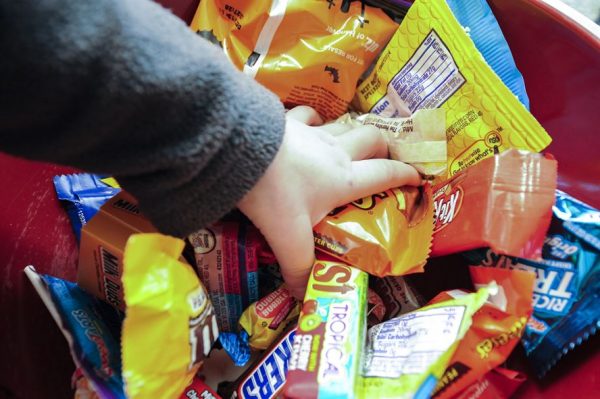
Photo Credit: Christopher Gross/Released
Dr Fiona Lithander, Senior Research Associate, NIHR Bristol Biomedical Research Centre.
Fiona explains how a new questionnaire could be used to increase healthy food and drink options in hospital retail outlets

At the National Institute for Health Research (NIHR), Bristol Biomedical Research Centre we are interested in the role the NHS plays in promoting good nutrition and health in children. Recent reports have shown a quarter of children in the UK are overweight or obese; a worrying statistic in itself, and the problem doesn’t appear to be getting any better.
NICE guidelines say that retail outlets in hospitals such as shops, cafes, restaurants and vending machines should offer healthy food and drink options, and that these options should be prominently displayed. They also say that nutritional information about the foods on their menus should be available. These guidelines do not refer to foods served to patients, although patients may have access to foods and drinks for sale onsite.
At NIHR Bristol Biomedical Research Centre we developed a new questionnaire to help NHS Trusts assess how healthy their food and drink options are. This differs from other questionnaires in that it allows Trusts to compare their findings with the NICE guidelines. Trusts can use this questionnaire to measure how healthy prepared foods for sale are, and can make changes accordingly. These changes may involve, replacing sugary drinks with sugar-free options such as water, and replacing chocolate bars with more healthy options such as unsalted nuts.
Using this questionnaire, we measured how healthy the foods and drinks were in two Trusts, and how closely they followed NICE guidelines. Our findings showed a lack of healthy food and drink options for sale in vending machines. Nutritional information on menus was minimal, and there was limited promotion and advertising of healthy foods and drinks. Since the findings were published, both of the Trusts have made improvements.
Our plan is to further develop the questionnaire in conjunction with the NICE guidelines, so that it can be used more widely in NHS Trusts and in local authority settings, such as leisure centres. Making it easier for parents to direct their children to healthier choices should be a central element of our healthcare system.
Disclaimer: This study was supported by the NIHR Biomedical Research Centre at the University Hospitals Bristol NHS Foundation Trust and the University of Bristol. The views expressed in this article are those of the author(s) and not necessarily those of the NHS, the National Institute for Health Research or the Department of Health.
This blog was originally published by the National Institute for Health and Care Excellence (NICE)




